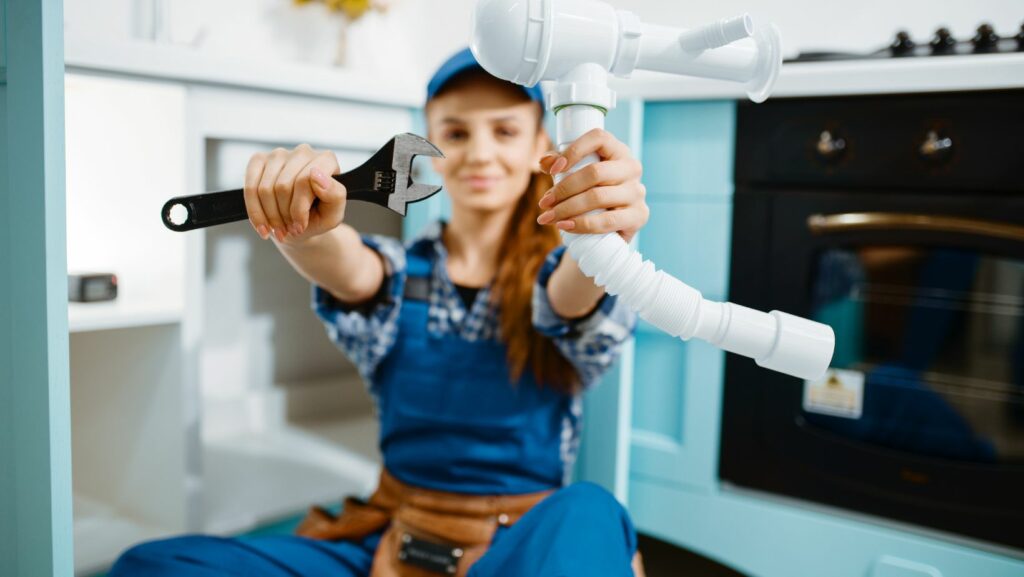Embarking on a renovation project for your bathroom or kitchen is an exciting endeavor that can significantly enhance your home’s functionality and aesthetic appeal. However, amidst the design decisions and material selections, paying attention to the plumbing considerations is crucial. We will explore the critical plumbing aspects you need to know when renovating your bathroom or kitchen, ensuring a smooth and successful project.
Assessing Plumbing Needs
Before starting the renovation process, it is essential to assess your current plumbing setup. Evaluate the age and condition of your pipes, fixtures, and fittings. Older plumbing systems may require upgrades to meet modern standards and accommodate new features such as high-efficiency appliances or luxury fixtures. Determine if your water supply and drainage systems can support the planned changes and if any adjustments are needed to prevent issues like low water pressure or drainage problems. If you’re unsure, head to the Sarkinen Plumbing site to ask professionals.
Fixture Selection and Placement
Choosing the right fixtures for your renovated bathroom or kitchen is not just about aesthetics but also practical plumbing considerations. Consider each fixture’s size, layout, and plumbing requirements, including sinks, faucets, showers, and toilets. Ensure the selected fixtures are compatible with your plumbing system and meet local building codes. Proper fixture placement is crucial to optimizing functionality and ensuring efficient water flow, minimizing the risk of leaks or backups.
Upgrading Plumbing Infrastructure
Depending on the extent of your renovation project, you may need to upgrade your plumbing infrastructure to accommodate new features or address existing issues. This could involve replacing old pipes with modern materials like copper or PEX for improved durability and performance.

Upgrading to a larger water heater or adding a water filtration system may also be necessary to meet your household’s needs and enhance water quality.
Ventilation and Drainage Considerations
Proper ventilation and drainage are essential aspects of a functional bathroom or kitchen. Inadequate ventilation can lead to moisture buildup, mold growth, and unpleasant odors, while poor drainage can result in slow or clogged drains. Evaluate your ventilation system to ensure adequate airflow, and consider installing exhaust fans or ventilation hoods as needed. For drainage, choose high-quality pipes and ensure proper slope and sizing to facilitate smooth water flow and prevent blockages.
Hiring Professional Plumbing Services
While DIY enthusiasts may be tempted to tackle plumbing tasks during a renovation, it’s often best to enlist the services of a professional plumber. Experienced plumbers have the knowledge, skills, and tools to handle complex installations, repairs, and code compliance requirements. They can also identify potential issues early on and recommend cost-effective solutions, saving you time, money, and headaches in the long run. Be sure to research and hire reputable plumbing contractors with a track record of quality artistry.
Water Efficiency and Conservation
In today’s environmentally conscious world, water efficiency and conservation are paramount considerations in any renovation project. Opt for water-saving fixtures such as low-flow toilets, aerated faucets, and efficient showerheads to reduce water consumption without compromising performance. Consider installing a dual-flush toilet system that allows users to choose between full and partial flush, further minimizing water usage. Additionally, explore options for graywater recycling or rainwater harvesting systems to reuse water for non-potable purposes like irrigation or flushing, promoting sustainability in your home.
Addressing Potential Plumbing Issues
During the renovation process, addressing any existing or potential plumbing issues is crucial to avoid future headaches. Conduct a thorough inspection of your plumbing system for leaks, corrosion, or damage that may require immediate attention. Addressing these issues proactively can prevent more significant problems and ensure the long-term reliability of your renovated bathroom or kitchen.

Consider scheduling regular maintenance checks with a professional plumber to keep your plumbing system in optimal condition and catch any potential issues early on.
Incorporating Smart Plumbing Technology
Smart technology advancements have revolutionised how we interact with our homes, including plumbing systems. Consider incorporating smart plumbing technology into your renovation project for added convenience, efficiency, and control. Smart faucets and shower systems offer touchless operation, water temperature control, and programmable settings for personalized comfort. Leak detection sensors can alert you to leaks or water damage, allowing prompt intervention and minimizing water waste. Explore the possibilities of integrating smart home automation systems to monitor and manage your plumbing remotely, enhancing your renovated space’s overall functionality and performance.
Renovating your bathroom or kitchen can significantly enhance your home’s comfort, functionality, and value. However, overlooking plumbing considerations during renovation can lead to costly repairs and disruptions. You can ensure a successful and hassle-free renovation project by assessing your plumbing needs, selecting appropriate fixtures, upgrading infrastructure as needed, ensuring proper ventilation and drainage, and hiring professional plumbing services. You can enjoy your newly renovated space for years with careful planning and attention to detail.


More Stories
Luxury Glassware for Yachts — Which Collections Are Worth Bringing On Board
Zoning Spaces Within a Single Room: Architectural Strategies for Spatial Clarity
Luxury Upgrades on a Budget: How to Achieve a High-End Look for Less